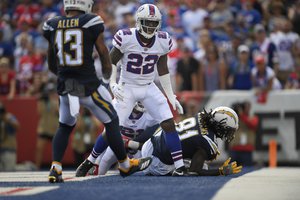
Cups (song)
"Cups" is a version of the 1931 Carter Family song "When I'm Gone", usually performed a capella with a cup used to provide percussion, as in the cup game. It was first performed this way in a YouTube video by Lulu and The Lampshades in 2009 (under the title "You're Gonna Miss Me"). Composition of the song is credited to A. P. Carter and Luisa Gerstein of Lulu and the Lampshades.
The song became popular after it was covered by Anna Kendrick in the 2012 film Pitch Perfect. That version also became the official theme song of the 2013 CONCACAF Gold Cup tournament.
Origin and release
The original song "When I'm Gone" was written by A. P. Carter, then recorded in 1931 by the Carter Family (not to be confused with their 1928 song "Will You Miss Me When I’m Gone?"). The song was reworked in 1937 by J. E. Mainer. Over the years it has been recorded by many people including Mainer's Mountaineers and Charlie Monroe. It can also be heard in the film Dan in Real Life.
Lulu and the Lampshades were the first to perform the song using the cup game for percussion. Their video went viral after a Reddit posting, prompting dozens of other budding musicians to record cover versions of the song using the Cup Clap technique. It was soon dubbed The Cup Song.

Cup
A cup is a small open container used for drinking and carrying drinks. It may be made of wood, plastic, glass, clay, metal, stone, china or other materials, and may have a stem, handles or other adornments. Cups are used for drinking across a wide range of cultures and social classes, and different styles of cups may be used for different liquids or in different situations.
Cups have been used for thousands of years for the purpose of carrying food and drink, as well as for decoration. They may also be used in certain cultural rituals and to hold objects not intended for drinking such as coins.
Types
Names for different types of cups vary regionally and may overlap. Any transparent cup, regardless of actual composition, is likely to be called a "glass"; therefore, while a cup made of paper is a "paper cup", a transparent one for drinking shots is called a "shot glass", instead.
Cups for hot beverages
While in theory, most cups are well suited to hold drinkable liquids, hot drinks like tea are generally served in either insulated cups or porcelain teacups.

CUPS
CUPS (an acronym for Common Unix Printing System) is a modular printing system for Unix-like computer operating systems which allows a computer to act as a print server. A computer running CUPS is a host that can accept print jobs from client computers, process them, and send them to the appropriate printer.
CUPS consists of a print spooler and scheduler, a filter system that converts the print data to a format that the printer will understand, and a backend system that sends this data to the print device. CUPS uses the Internet Printing Protocol (IPP) as the basis for managing print jobs and queues. It also provides the traditional command line interfaces for the System V and Berkeley print systems, and provides support for the Berkeley print system's Line Printer Daemon protocol and limited support for the server message block (SMB) protocol. System administrators can configure the device drivers which CUPS supplies by editing text files in Adobe's PostScript Printer Description (PPD) format. There are a number of user interfaces for different platforms that can configure CUPS, and it has a built-in web-based interface. CUPS is free software, provided under the GNU General Public License and GNU Lesser General Public License, Version 2.
CUPS (CMU)
The Carnegie Mellon University Usable Privacy and Security Laboratory (CUPS) was established in the Spring of 2004 to bring together Carnegie Mellon University researchers working on a diverse set of projects related to understanding and improving the usability of privacy and security software and systems. The privacy and security research community has become increasingly aware that usability problems severely impact the effectiveness of mechanisms designed to provide security and privacy in software systems. Indeed, one of the four grand research challenges in information security and assurance identified by the Computing Research Association in 2003 is: "Give end-users security controls they can understand and privacy they can control for the dynamic, pervasive computing environments of the future." This is the challenge that CUPS strives to address. CUPS is affiliated with Carnegie Mellon CyLab and has members from the Engineering and Public Policy Department, the School of Computer Science, the Electrical and Computer Engineering Department, the Heinz College, and the Department of Social and Decision Sciences.

Song
A song is a single (and often standalone) work of music intended to be sung by the human voice with distinct and fixed pitches and patterns using sound and silence and a variety of forms that often include the repetition of sections. Written words created specifically for music or for which music is specifically created, are called lyrics. If a pre-existing poem is set to composed music in classical music it is an art song. Songs that are sung on repeated pitches without distinct contours and patterns that rise and fall are called chants. Songs in a simple style that are learned informally are often referred to as folk songs. Songs that are composed for professional singers are called popular songs. These songs, which have broad appeal, are often composed by professional songwriters, composers and lyricists. Art songs are composed by trained classical composers for concert performances. Songs are performed live and recorded. Songs may also appear in plays, musical theatre, stage shows of any form, and within operas.
& (disambiguation)
&, or ampersand, is a typographic symbol.
& may also refer to:

Song (airline)
Song, LLC was a low-cost air service within an airline brand owned and operated by Delta Air Lines from 2003 to 2006.
Song's main focus was on leisure traffic between the northeastern United States and Florida, a market where it competed with JetBlue Airways. It also operated flights between Florida and the West Coast, and from the Northeast to the west coast.
Song's aircraft were fitted with leather seats and free personal entertainment systems at every seat, with audio MP3 programmable selections, trivia games that could be played against other passengers, a flight tracker, and satellite television (provided by the DISH Network). Song offered free beverages, but charged for meals and liquor. Both brand-name snack boxes and healthy organic meals were offered. The flight safety instructions were sung or otherwise artistically interpreted, depending on the cabin crew. In addition to crew uniforms designed by Kate Spade, customized cocktails created by nightlife impresario Rande Gerber and an in-flight exercise program designed by New York City fitness guru David Barton, the airline created its own distinct mark in the industry. The Song brand was placed on more than 200 flights a day which carried over ten million passengers.

Cups (song)
"Cups" is a version of the 1931 Carter Family song "When I'm Gone", usually performed a capella with a cup used to provide percussion, as in the cup game. It was first performed this way in a YouTube video by Lulu and The Lampshades in 2009 (under the title "You're Gonna Miss Me"). Composition of the song is credited to A. P. Carter and Luisa Gerstein of Lulu and the Lampshades.
The song became popular after it was covered by Anna Kendrick in the 2012 film Pitch Perfect. That version also became the official theme song of the 2013 CONCACAF Gold Cup tournament.
Origin and release
The original song "When I'm Gone" was written by A. P. Carter, then recorded in 1931 by the Carter Family (not to be confused with their 1928 song "Will You Miss Me When I’m Gone?"). The song was reworked in 1937 by J. E. Mainer. Over the years it has been recorded by many people including Mainer's Mountaineers and Charlie Monroe. It can also be heard in the film Dan in Real Life.
Lulu and the Lampshades were the first to perform the song using the cup game for percussion. Their video went viral after a Reddit posting, prompting dozens of other budding musicians to record cover versions of the song using the Cup Clap technique. It was soon dubbed The Cup Song.
Latest News for: cups (song)
Sheeran closes out concert season in Foxboro with energetic performance
 The Sun Chronicle
17 Sep 2018
The Sun Chronicle
17 Sep 2018
College basketball annuals split on how Arizona Wildcats will do this season
 Olean Times Herald
16 Sep 2018
Olean Times Herald
16 Sep 2018
They said it: Nebraska coach Scott Frost on the Huskers' loss to Troy
 Olean Times Herald
16 Sep 2018
Olean Times Herald
16 Sep 2018
Oli Bell: Doncaster Yankee for day three of the St Leger Festival
Mr. Havercamp in the spotlight
Cops to put a cap on Jantar Mantar protesters
No worker in Punjab paid unemployment allowance under MGNREGA
Will pay back TRS in its own coin: Uttam Kumar
LRD jawan held taking bribe, cop escapes
High court grants 10-day remand of Bhatt, Vyas
Gambling racket: 5 cops shifted for 'going easy'
Ludhiana to get CNG by year-end
Year on, three booked for debit card fraud
- 1
- 2
- 3
- 4
- 5
- Next page »
News Search
Most Viewed
Radio Free Europe | 17 Sep 2018
WorldNews.com | 17 Sep 2018
The Independent | 17 Sep 2018
DNA India | 17 Sep 2018





































